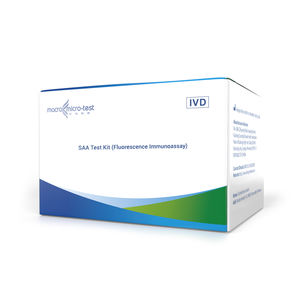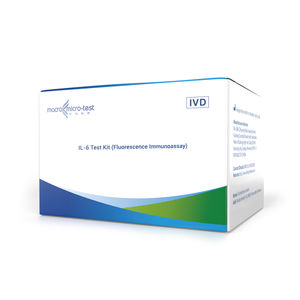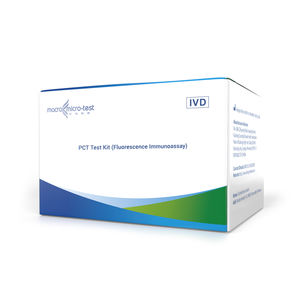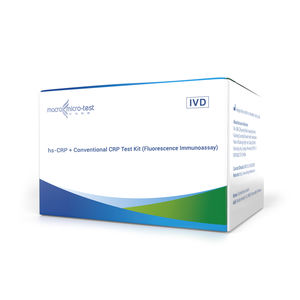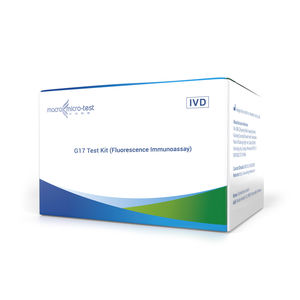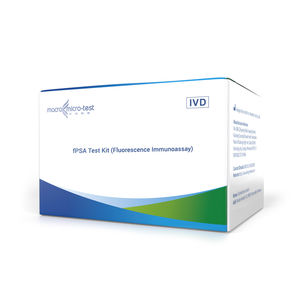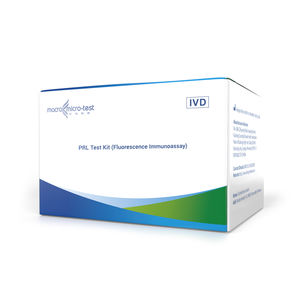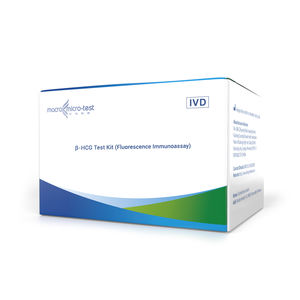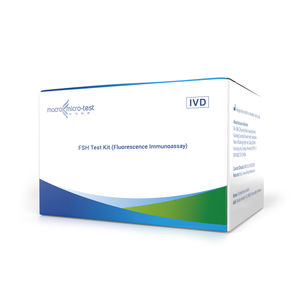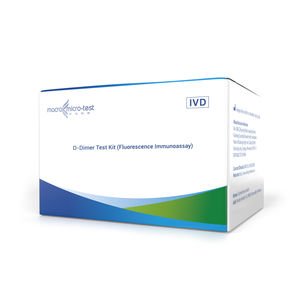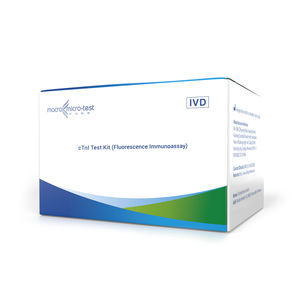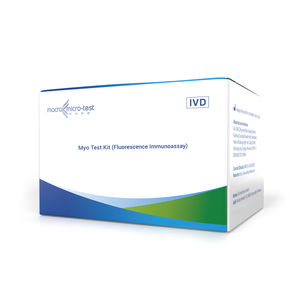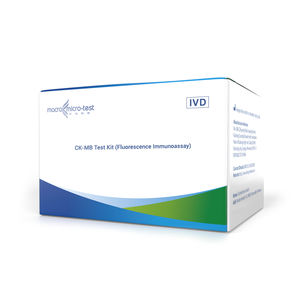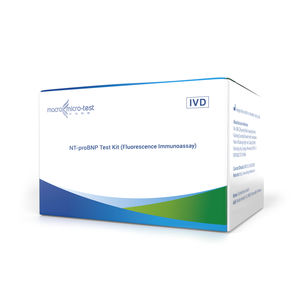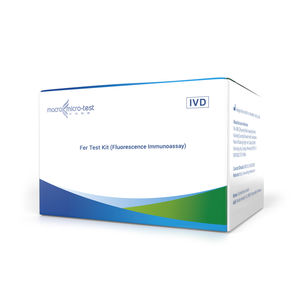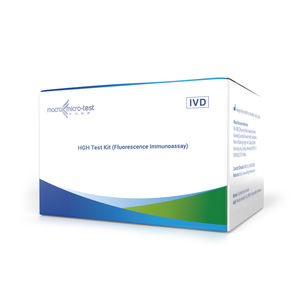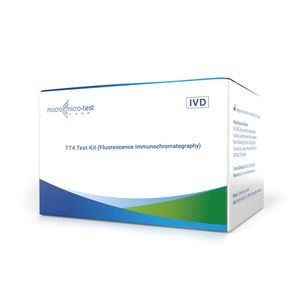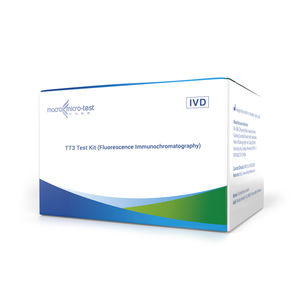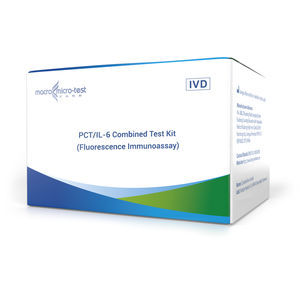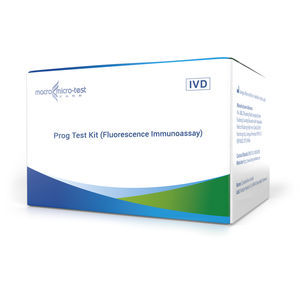
- Laboratory
- Laboratory medicine
- Immunodetection test kit
- Jiangsu Macro micro-test Medical Technology

- Company
- Products
- Catalogs
- News & Trends
- Exhibitions
Immunodetection test kit HWTS-OT111AAFPserumplasma
Add to favorites
Compare this product
Characteristics
- Application field
- for immunodetection
- Tested parameter
- AFP
- Sample type
- serum, plasma, whole blood
- Analysis mode
- immunochromatographic
- Format
- cassette, strip
Description
Short Description:
The kit is used for quantitative detection of the concentration of alpha fetoprotein (AFP) in human serum, plasma or whole blood samples in vitro.
Technical Parameters
Target region - Serum, plasma, and whole blood samples
Test Item - AFP
Storage - 4℃-30℃
Shelf-life - 24 months
Reaction Time - 15 minutes
Clinical Reference - <20ng/mL
LoD - ≤2ng/mL
CV - ≤15%
Linear range - 2-300 ng/mL
Applicable Instruments - Fluorescence Immunoassay Analyzer HWTS-IF2000
Fluorescence Immunoassay Analyzer HWTS-IF1000
Epidemiology
Alpha-fetoprotein (alpha fetoprotein, AFP) is a glycoprotein with a molecular weight of about 72KD synthesized by yolk sac and liver cells in the early stage of embryonic development. It has a high concentration in fetal blood circulation, and its level drops to normal within one year after birth. Normal adult blood levels are extremely low. The content of AFP is related to the degree of inflammation and necrosis of liver cells. Elevation of AFP is a reflection of liver cell damage, necrosis, and subsequent proliferation. Alpha-fetoprotein detection is an important indicator for clinical diagnosis and prognosis monitoring of primary liver cancer. It has been widely used in tumor diagnosis in clinical medicine.
Determination of alpha-fetoprotein can be used for auxiliary diagnosis, curative effect and prognosis observation of primary liver cancer. In some diseases (non-seminoma testicular cancer, neonatal hyperbilirubinemia, acute or chronic viral hepatitis, liver cirrhosis and other malignant diseases), the increase of alpha-fetoprotein can also be seen, and AFP should not be used as a general cancer detection screening tool.
Catalogs
No catalogs are available for this product.
See all of Jiangsu Macro micro-test Medical Technology‘s catalogsOther Jiangsu Macro micro-test Medical Technology products
Immunochromatography
Related Searches
- Assay kit
- Solution reagent kit
- Blood assay kit
- Serum assay kit
- Immunoassay assay kit
- Plasma assay kit
- Infectious disease detection kit
- Blood rapid diagnostic test
- Diagnostic reagent kit
- Immunoassay rapid diagnostic test
- Molecular test kit
- Cassette rapid diagnostic test
- Rapid virus test
- Respiratory infection test kit
- Whole blood detection kit
- Serum rapid diagnostic test
- Plasma rapid diagnostic test
- Optical assay kit
- Clinical assay kit
- Infectious disease rapid diagnostic test
*Prices are pre-tax. They exclude delivery charges and customs duties and do not include additional charges for installation or activation options. Prices are indicative only and may vary by country, with changes to the cost of raw materials and exchange rates.

